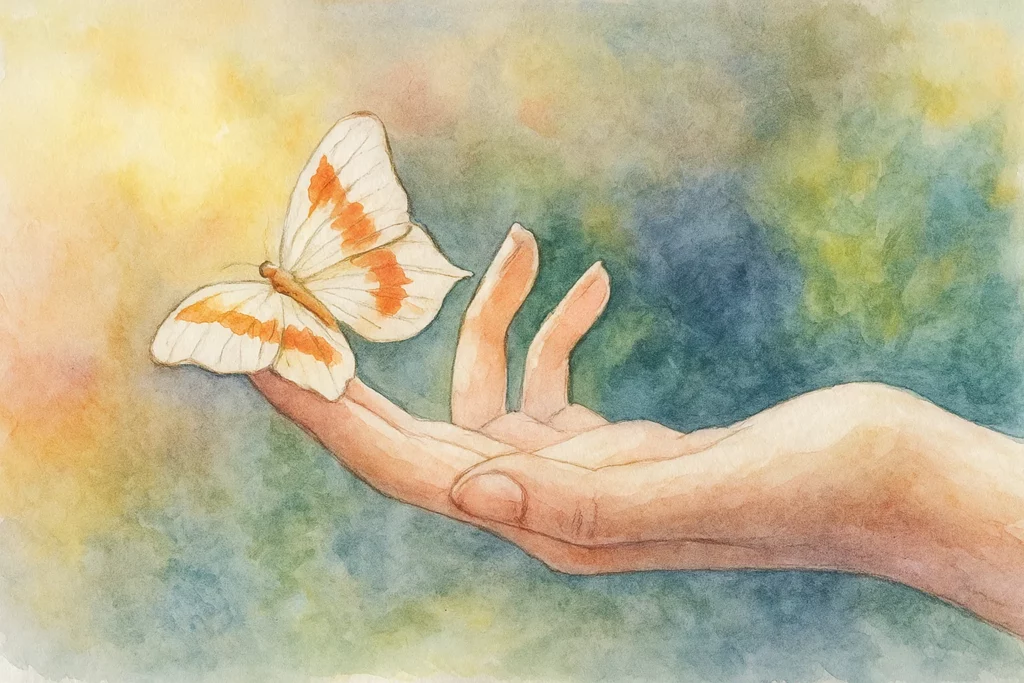С помощью карма-йоги человек может очистить свое грубое существование и самое главное — духовно возвыситься путем правильного исполнения обязанностей.
Мало кто серьезно задумывается о духовной жизни, пока всё хорошо. Наступив уже несколько раз на одни и те же грабли судьбы, мы, наконец, понимаем, что недостаточно образованы, чтобы разобраться в насущных житейских вопросах. Ведь если мы не можем повлиять на какую-то ситуацию, это не значит, что мы прикладываем к этому мало усилий. Просто у каждого из нас есть свои пределы. Так, постепенно приходит понимание, что мы действительно не всегда можем что-то сделать, и появляется потребность в знании, чтобы понять, почему так происходит.
Например, не все могут выйти замуж, хорошо зарабатывать, иметь детей и т. д. Олег Геннадьевич утверждает, что если не пришло время выходить замуж, то у девушки нет ни одного шанса это сделать. А если пришло время, то нет никакого шанса этого избежать. Следовательно, не мы управляем энергиями, которые предоставляют нам эти шансы и возможности, а личность, которую мы называем Богом, Абсолютом или Сверхдушой.
Веды описывают, что есть множество путей к Богу. В этом случае Бог уподобляется океану, а все пути — рекам, которые в него впадают. Поскольку слово «йога» означает связь с Ним, высшим источником энергии, то все эти пути на санскрите именуются как разновидности йоги. В этой статье мы рассмотрим карма-йогу и ее проявление через систему общественного уклада (варнашраму).
Карма-йога — это путь, на котором человек постигает Бога через свою деятельность («карма» с санскрита переводится как «действие»). Путь карма-йоги означает, что человек начал исполнять свой долг и обязанности. И здесь важно понимать, что является нашим долгом, предназначением, как мы можем быть полезны обществу. Поэтому в карма-йоге рассматривается система конституций разума (варны) и укладов духовной жизни (ашрамы).
В ведической философии выделяют четыре сословия, которые определяются качествами человека, полученными при рождении. Существует ложное убеждение, что сословия, или касты, определяются семьей, в которой человек рождается, однако это не так. Природа человека определяется качествами характера, которыми его наделил Бог. В соответствии с этими качествами выделяют ученых (брахманов), руководителей (кшатриев), торговцев (вайшей) и рабочих (шудр).
Все они имеют разные наклонности и способности, и у каждого из них есть определяющие черты в характере, которые выдают в них один из четырех типов. Так, например, для ученого самым важным является правда, для руководителя — порядок, для торговца — щедрость, а для рабочего — любовь к труду. Так, проявляя эти качества, люди могут добиться успеха в деятельности и принести пользу обществу.
Если мы неразвиты должным образом, то, даже занимаясь деятельностью по своему предназначению, мы будем отличаться противоположными качествами. Неразвитый ученый не будет склонен передавать свои знания, при этом он может ими чересчур хвастаться и ощущать свое личное превосходство над другими людьми. Неразвитый руководитель будет не защищать и заботиться об подчиненных, а наоборот, пользоваться своим положением, чтобы давить на тех, кто ниже его по статусу, и раболепствовать перед большим начальством.
Если человек по природе бизнесмен, но он не развит как личность, то он будет пытаться заработать все деньги мира, но при этом его будет отличать сильная жадность. Ему будет трудно выделить хоть какие-то деньги на благотворительные цели. Неразвитый человек-рабочий будет очень сильно лениться. Он будет срывать заказы, делать свою работу спустя рукава и стремиться к тому, чтобы люди вокруг от него отстали. Так будет проявляться неразвитость у четырех типов, или варн, что впоследствии приведет к страданиям самого человека и общества в целом. Ведь те, кто не хочет выполнять свои обязанности или же трудится не по своему предназначению, делают общество больным и способствуют его деградации.
Следует знать, что работа по не своему предназначению не приносит ничего хорошего. Так, врач, который по своей природе не является ученым, а торговцем, будет стремиться зарабатывать на пациентах. Судья, который не является руководителем, будет всех жалеть или будет поддаваться манипуляциям защитников подсудимых. Как следствие, он не сможет вынести правильный приговор. От этого пострадает подсудимый (безнаказанный человек навлекает на себя еще большие страдания), судья (неправильное решение повлечет за собой плохую карму) и общество (люди вокруг перестанут выполнять свои обязанности и будут думать, что им за это ничего не будет).
В Священных Писаниях говорится, что лучше исполнять свой долг плохо, чем чужой хорошо. Поэтому если замужняя женщина гордится тем, что она отдала ребенка в ясли и пошла зарабатывать на ипотеку или сама лично сделала ремонт во всей квартире, то тут особо нечем хвалиться. Хотя на первый взгляд, это кажется довольно безобидным и хочется сказать: «Какая молодец». Ну и что, что все ящики на даче сама перетаскала, гвозди забила и раковину прочистила, зато дело же сделано, и ладно.
Такое поведение формирует у мужчины привычку, что жена и так всё прекрасно умеет и зачем напрягаться, когда можно посмотреть телевизор или поиграть в компьютерные игры. Со временем такое рвение исполнять чужие обязанности не только не принесет благодарности со стороны близкого человека, но и обязательно выльется в скандал. Жена будет думать, что ей достался муж-лоботряс, который не может ей даже руки подать, пока она бегает со стремянкой по квартире.
По этой причине женщина не должна брать на себя мужские обязанности: быть главой семьи, обеспечивать ее финансами, принимать решения, носить тяжести и т. д. Она должна совершенствоваться как женщина в своих обязанностях: в приготовлении еды с любовью, уборке дома, воспитании детей, налаживании отношений со всеми родственниками и т. д. Это будет способствовать укреплению семьи, а значит, и всего общества. Так, одна счастливая семья может помочь другим семьям, а несчастная семья, увы, помочь никому не сможет, более того она может развалить другие благополучные семьи.
При этом путь карма-йоги предполагает, что человек выполняет свои обязанности, но не привязывается к плодам своего труда. Это значит, что он воспитывает ребенка, но не ждет от него, что тот, будучи взрослым, будет за ним ухаживать. Такой человек, совершая хорошие поступки, не ждет благодарности в ответ. Планируя какие-то дела, он понимает, что всё может измениться в последний момент, и принимает это. Потому что если мы привязываемся к результатам, а потом всё складывается по-другому, то мы испытываем сильные страдания и начинаем обвинять в этом окружающих.
Что касается системы ашрамов, человек постепенно должен пройти через четыре этапа жизни: ученичество, семейную жизнь, уход от дел и отшельничество. Если ранее мы рассмотрели систему, которая ставит человека в рамки по отношению к общественной деятельности, то здесь мы видим ограничения, которые связаны с личной жизнью человека. Зачем нужны такие ограничения? Они помогают человеку не забывать о Боге, следовать духовным принципам и совершать аскезы.
Например, в молодые годы человек должен получить нравственное и духовное образование о том, как правильно жить. В этот период жизни он служит духовному учителю и при этом полностью воздерживается от общения с противоположным полом. Потом он создает семью, основным долгом которой является воспитание благочестивых детей, поддержание родственников, особенно пожилых родителей, святых, а также гостей. Поэтому в ведические времена любой монах мог найти прибежище в самой простой семье. Считается, что такое служение очень нравится Богу.
Затем наступает период, когда человек уходит от активной деятельности и постепенно передает все дела своим детям. В это время он уделяет больше времени духовной практике и совершению аскез, готовится к отречению. Этот период перекликается с другими духовными традициями, в которых пожилые люди погружаются в духовную жизнь, чувствуя приближение встречи с Богом. Последний этап — отречение. Этот период характеризуется служением Богу, полным отречением от материального мира и подготовкой к оставлению тела и достижению освобождения. Таким образом, человек проживает осознанную жизнь, наполненную духовной практикой и служением людям и Богу.
В соответствии с описанными двумя системами (варнашрамами) у каждого человека есть свой набор обязанностей, который он должен выполнять. Поэтому если люди будут задумываться о своем предназначении и обязанностях, развивать себя как личность и выполнять свой долг, тогда общество будет счастливым и процветающим. В ведической культуре варнашрама помогала упорядочить общественные и личные отношения человека и создать ему условия для духовного развития. Так, с помощью карма-йоги человек может очистить свое грубое существование и самое главное — духовно возвыситься путем правильного исполнения обязанностей.





